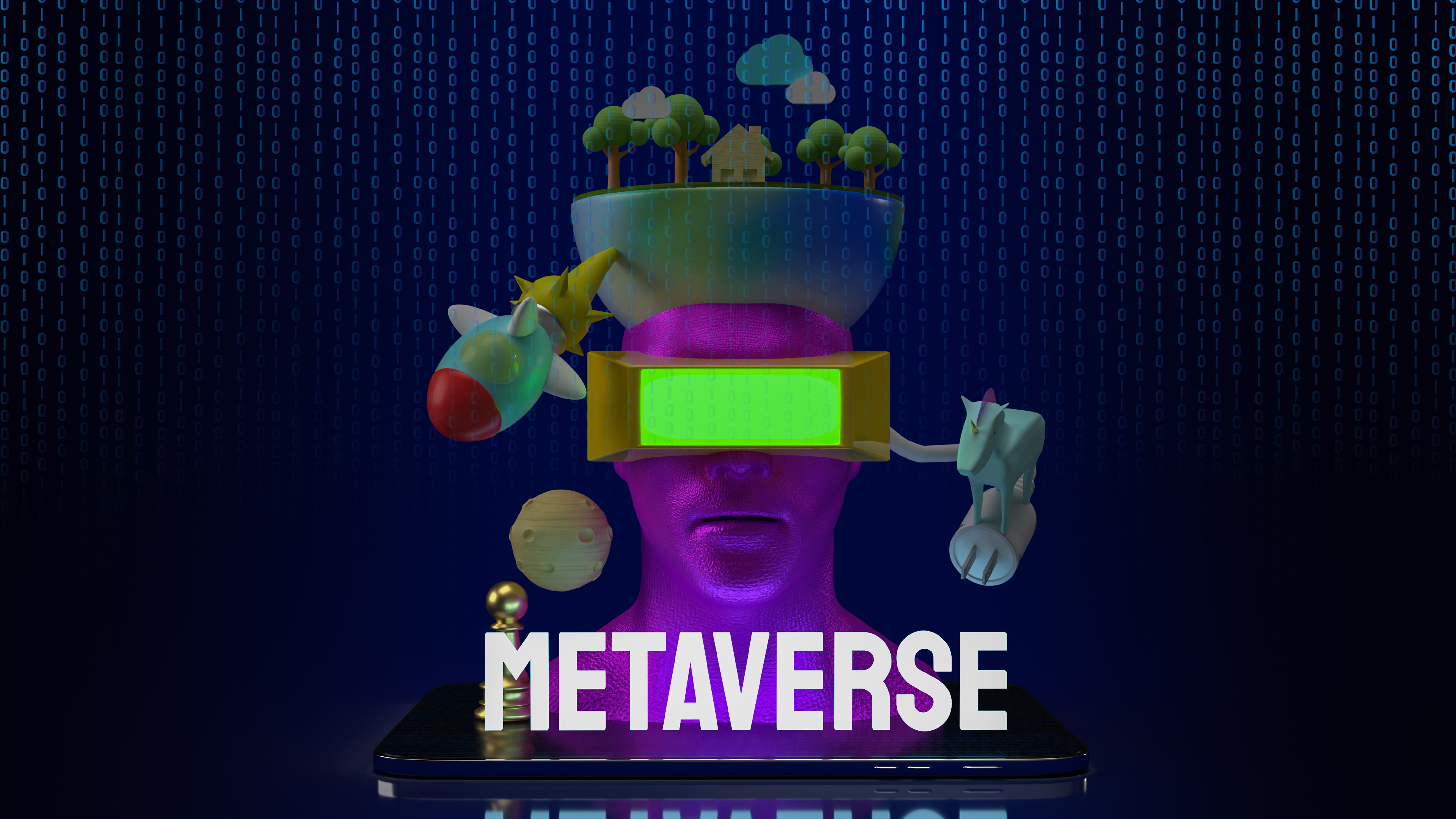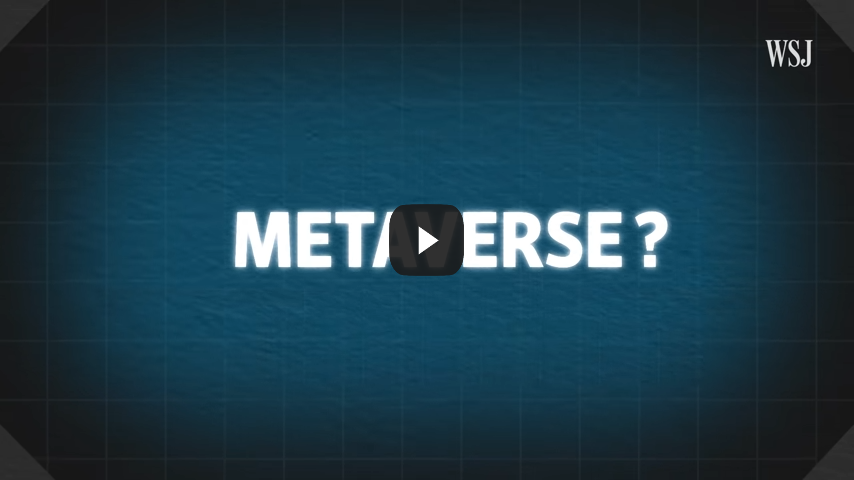Are We Ready for the Metaverse?

With the metaverse, you’re not just viewing the internet–you’re in it. Is that a whole new world we’re ready for?
The tech industry is abuzz with plans, visions, and investments for the metaverse. In this article, find out what the metaverse is–or could be. Learn who the big players are and how it could change how we work, play, and live.
What is the metaverse?
In this new era of the internet, we will not be browsing or scrolling on our screens. Instead, we will be walking through a shared, immersive, persistent, 360-degree digital world. Wearing VR headsets or AR glasses and using our avatars (a digital representation of our personas), we will go shopping, attend concerts, travel, work, collaborate, and socialize in interconnected virtual communities.
Some aspects of the metaverse already exist. Virtual avatars have been in the gaming world for decades, with players of video games such as Minecraft, Fortnite, and Roblox spending billions of dollars annually on their digital selves.
(Also read: Gamers Unite: Four Trends for 2022)
No longer confined to the gaming industry, VR and AR technology are being used in healthcare, training, entertainment, and manufacturing. At the height of the COVID-19 pandemic, virtual reality tourism offered a risk-free escape in the safety of our homes. VR technology has not only improved significantly over the years but has become more mainstream as well.
(Also read: Augmented and Virtual Reality Finds its Place in the Real World)
The rise of nonfungible tokens (NFTs), which track the ownership of digital goods, could indicate how a virtual economy would work. Investors are already betting big on the metaverse and have made record-breaking purchases of digital land.
What could a day in the metaverse be like? Watch this video to find out.
The masters of the multiverse
While some of the building blocks of the metaverse are in place, it’s still in the early stages, and the battle to dominate the metaverse will likely be fought in the next decade. Let’s see who the contenders are.
Meta
Mark Zuckerberg, who rebranded Facebook to Meta last October, sees the metaverse as “an embodied internet where you’re in the experience, not just looking at it.” The company’s Reality Labs division, which develops VR and AR technology, spent USD 10 billion on the metaverse in 2021.
Currently, Meta’s focus is on creating virtual spaces for meetings and socializing. With Horizon Workrooms, colleagues can collaborate in a virtual meeting space using their Oculus Quest 2 VR headset and the Oculus Remote Desktop app or through a video call on their laptop or desktop computer. Users can share ideas in real-time on a virtual whiteboard. They can also customize the virtual room’s layout to suit the meeting’s objective–whether it’s a presentation or a brainstorming session.
In Horizon Worlds, the company’s social virtual-reality app, users can explore different VR worlds and create their own. You can play games, attend events, or just hang out with other users.
As part of Meta’s plans to build the metaverse, the company recently announced that it has built what it claims to be one of the fastest AI supercomputers in the world today. Called the AI Research SuperCluster (RSC), it will enable AI research and technologies for the metaverse, where “AI-driven applications and products will play an important role.”
Microsoft
With its recent USD 68.7 billion acquisition of videogame publisher Activision Blizzard, the software giant is betting big on the metaverse.
“Gaming is the most dynamic and exciting category in entertainment across all platforms today and will play a key role in the development of metaverse platforms,” Satya Nadella, Microsoft chairman and CEO, said in a press release. “We’re investing deeply in world-class content, community, and the cloud to usher in a new era of gaming that puts players and creators first and makes gaming safe, inclusive, and accessible to all.”
Microsoft already uses holograms and is developing mixed-reality applications with Microsoft Mesh. Colleagues can collaborate in shared spaces using AR/VR devices, laptops, tablets, phones, and computers.
Watch this video for a Microsoft Mesh demo.
(Also read: The Future of Work: Is Remote Work Here to Stay?)
Nvidia
“The internet is essentially a digital overlay on the world,” NVIDIA CEO Jensen Huang said during his keynote speech at the GTC 2021 event. “The overlay is largely 2D information–text voice, images, video–but that’s about to change. We now have the technology to create new 3D virtual worlds or model our physical world."
As one of the leading GPU manufacturers in the world, Nvidia already has a strong foothold in 3D simulation and gaming, positioning the company to be a key player in the metaverse. Omniverse is the company’s real-time 3D collaborative platform where designers, creators, and engineers can collaboratively build virtual worlds such as digital twins and simulations for training and product testing.
“We built Omniverse for builders of these virtual worlds,” Huang continued at the GTC. “Some worlds will be for gatherings and games. But a great many will be built by scientists, creators, and companies. Virtual worlds will crop up like websites today.”
Early this year, Nvidia announced a free version of Omniverse for individual artists and creators.
“We look at it as the same context as an operating system,” Richard Kerris, vice president of the Omniverse platform for Nvidia, explained during a press briefing. “A rising tide lifts all boats. There will be many avenues for commerce on these virtual worlds. We think there is an entire economy coming for these virtual worlds. The more we can make it available, the better all of us can benefit.”
Epic Games
“It’s no secret that Epic is invested in building the metaverse,” CEO Tim Sweeney said in a press release. In recent years, its game Fortnite has hosted virtual concerts by artists Travis Scott and Ariana Grande, movie screenings, and brand events. At Fortnite’s Party Royale island, players can watch movies, enjoy live entertainment, and hang out with friends.
The battle royale game, which had more than 350 million registered players in May 2020, has evolved from a video game to a virtual entertainment destination where artists and brands can create immersive experiences.
Its MetaHuman Creator is a browser-based software tool that provides a library of hairstyles, facial features, skin complexions, clothing, and more to create 3D characters in less than an hour. These digital creations can be downloaded and animated using Epic’s 3D creation platform Unreal Engine, and then used in video games and films.
The enterprise metaverse
What could the metaverse mean for businesses? Here are three metaverse use cases for the enterprise, according to InformationWeek.
- Collaboration. Virtual and augmented reality will foster more effective communication and collaboration in the workplace.
- Digital twins and simulations. Companies can leverage digital twins to strengthen engineering efforts and prevent manufacturing flaws. Digital simulations can help uncover production bottlenecks that could affect product quality or delivery.
- Business-to-consumer marketing. From Vans and Gucci to Adidas and Gap, apparel brands are creating branded worlds on gaming platforms, releasing virtual products and digital skins.
An exciting digital future or a digital dystopia?
Building the metaverse paves the way for immense possibilities, especially in manufacturing, remote work, healthcare, and training. It could remove geographical barriers, foster learning, and optimize production processes.
But it also presents real dangers, many of which are prevalent in today’s internet experience: online abuse, data harvesting, and security risks. For those unsatisfied with their lives in this universe, the allure of designing and existing in an entirely different reality could be hard to resist–and prove to be distracting or even addictive.
For the metaverse to be a new digital space for people to nurture positive connections and build communities, regulations must be in place to protect our rights, safety, and wellbeing.
As one of the Top 21 EMS companies in the world, IMI has over 40 years of experience in providing electronics manufacturing and technology solutions.
We are ready to support your business on a global scale.
Our proven technical expertise, worldwide reach, and vast experience in high-growth and emerging markets make us the ideal global manufacturing solutions partner.
Let's work together to build our future today.
Other Blog






